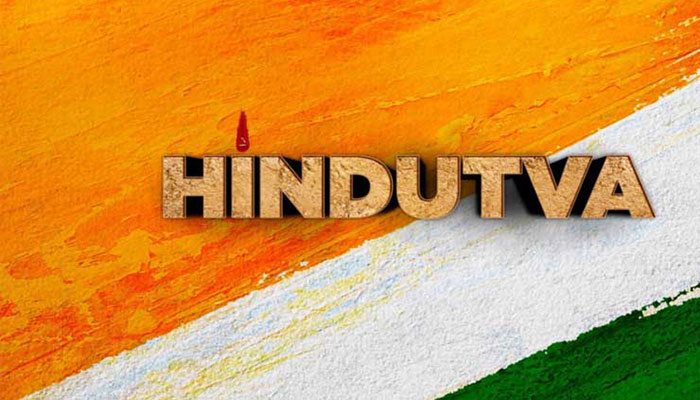Bollywood in grip of Modi’s Hindutva ideology
MUMBAI: Last month, the son of superstar Indian actor Shah Rukh Khan was arrested for consuming drugs at a party. In most parts of the world, celebrity news of this sort provides a momentary public distraction. In India, where the divide between Hindus and Muslims has deepened since Narendra Modi became the prime minister, Khan’s arrest has focussed attention on India’s fraying social fabric.
Supporters of Modi’s Hindu nationalist government defend the arrest as a matter of law and claim it reveals decadence in the movie industry. But India’s liberals contend it was a deliberate move intended to tarnish a Muslim idol’s image to appease the Hindu right.
Khan has been a star for more than a decade and is widely referred to as “King Khan,” the King of Bollywood. He is also known for his rise from poverty; he often regales the public with stories of the hardships he endured, including having to sleep on Mumbai’s streets while trying to make it as an actor. Tales of his struggle and success have inspired millions of Indians, including Muslims, and his exalted status delivers on India’s promise as a secular and inclusive nation where anyone — irrespective of religion, caste, or creed — can succeed.
But the Hindu right has a deep history of resenting the rise of Muslims, especially those who challenge their exclusivist politics — a group that includes Khan. In 2015, Khan spoke against the lynching incidents of Muslims by Hindu mobs for allegedly smuggling cows to be slaughtered and served as meat. Many Hindus consider cows to be holy.
“We have made a huge thing about our meat-eating habits. How can the food habits of people be an issue?” Khan told NDTV, a local news channel. “Religious intolerance and not being secular in this country is the worst kind of crime that you can do as a patriot.”
There is a pattern of far-right resentment focused on Bollywood stars. A year ago, Bollywood actress Deepika Padukone was accused of being a part of a nefarious drug network and was summoned for questioning by India’s national Narcotics Control Bureau. In 2019, Padukone joined a student protest against a controversial anti-Muslim citizenship law passed by the Modi government.
The cases might expose a “nexus of drugs” in the film industry, as claimed by several pro-Modi news networks. But liberals suspect Khan and Padukone were punished for speaking up against Islamophobia, and the cases against them are part of a more insidious campaign to intimidate Muslims and liberals associated with Bollywood.
This would be part of a wider pattern. Since Modi came to power, minorities and liberals in all influential segments of society have insinuated they are under pressure to silently accept the Hindu right’s discriminatory ideas about what India should be.
First, journalists complained of duress as pressure to self-censor increased. Most news networks either gave in or walked a fine line while others became unabashed mouthpieces of government policies. Left-leaning universities and those dominated by minorities were targeted next. India’s film and television industry, which employs more than 1 million people and has admirers around the world, is the latest to feel the heat. Movies and movie stars are now at the heart of a cultural revolution designed to crush dissent against the Modi government and change India’s path from a diverse to a culturally homogenous society.
-
 Bridgerton’s Michelle Mao On Facing Backlash As Season Four Antagonist
Bridgerton’s Michelle Mao On Facing Backlash As Season Four Antagonist -
 King Charles Gets New ‘secret Weapon’ After Andrew Messes Up
King Charles Gets New ‘secret Weapon’ After Andrew Messes Up -
 Shia LaBeouf Makes Bold Claim About Homosexuals In First Interview After Mardi Gras Arrest
Shia LaBeouf Makes Bold Claim About Homosexuals In First Interview After Mardi Gras Arrest -
 Princess Beatrice, Eugenie ‘strained’ As They Are ‘not Turning Back’ On Andrew
Princess Beatrice, Eugenie ‘strained’ As They Are ‘not Turning Back’ On Andrew -
 Benny Blanco Addresses ‘dirty Feet’ Backlash After Podcast Moment Sparks Online Frenzy
Benny Blanco Addresses ‘dirty Feet’ Backlash After Podcast Moment Sparks Online Frenzy -
 Sarah Ferguson Unusual Trait That Confused Royal Expert
Sarah Ferguson Unusual Trait That Confused Royal Expert -
 Prince William, Kate Middleton Left Sarah Ferguson Feeling 'worthless'
Prince William, Kate Middleton Left Sarah Ferguson Feeling 'worthless' -
 Ben Affleck Focused On 'real Prize,' Stability After Jennifer Garner Speaks About Co Parenting Mechanics
Ben Affleck Focused On 'real Prize,' Stability After Jennifer Garner Speaks About Co Parenting Mechanics -
 Luke Grimes Reveals Hilarious Reason His Baby Can't Stop Laughing At Him
Luke Grimes Reveals Hilarious Reason His Baby Can't Stop Laughing At Him -
 Why Kate Middleton, Prince William Opt For ‘show Stopping Style’
Why Kate Middleton, Prince William Opt For ‘show Stopping Style’ -
 Here's Why Leonardo DiCaprio Will Not Attend This Year's 'Actors Award' Despite Major Nomination
Here's Why Leonardo DiCaprio Will Not Attend This Year's 'Actors Award' Despite Major Nomination -
 Ethan Hawke Reflects On Hollywood Success As Fifth Oscar Nomination Arrives
Ethan Hawke Reflects On Hollywood Success As Fifth Oscar Nomination Arrives -
 Tom Cruise Feeling Down In The Dumps Post A Series Of Failed Romances: Report
Tom Cruise Feeling Down In The Dumps Post A Series Of Failed Romances: Report -
 'The Pitt' Producer Reveals Why He Was Nervous For The New Ep Of Season Two
'The Pitt' Producer Reveals Why He Was Nervous For The New Ep Of Season Two -
 Maggie Gyllenhaal Gets Honest About Being Jealous Of Jake Gyllenhaal
Maggie Gyllenhaal Gets Honest About Being Jealous Of Jake Gyllenhaal -
 'Bridgerton' Star Luke Thompson Gets Honest About Season Five
'Bridgerton' Star Luke Thompson Gets Honest About Season Five




